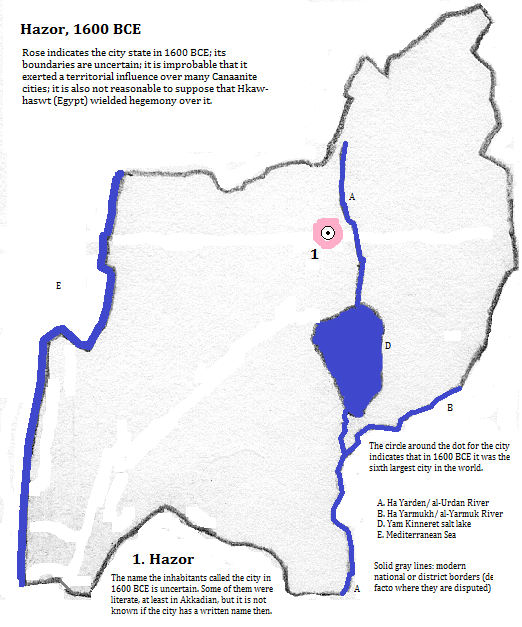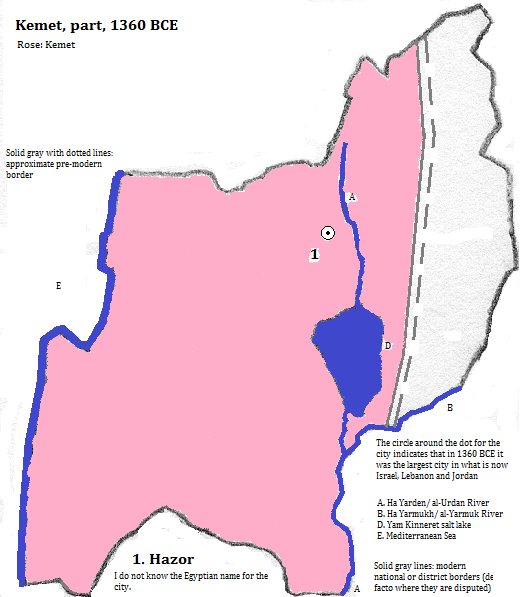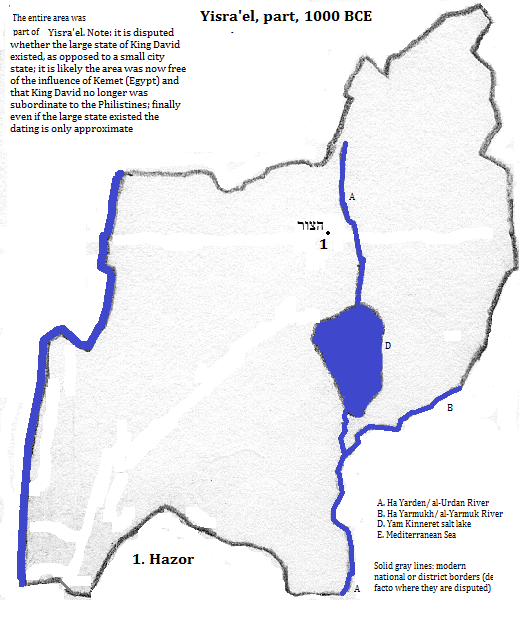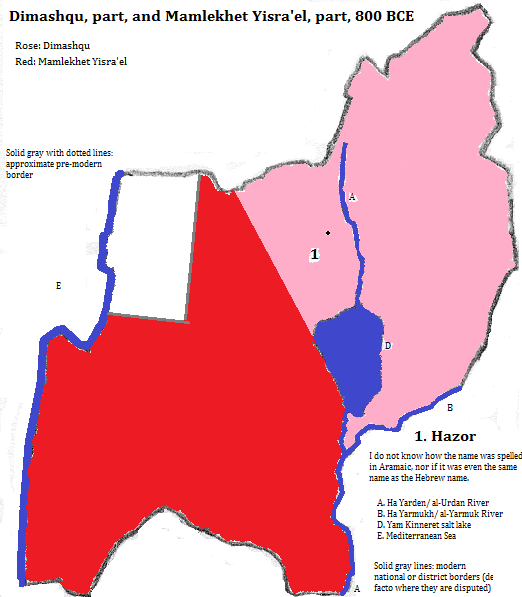
| To Duval Family Home Page | Asia | |
| To Chris Home Page | Yisra'el, Lubnān, al-Urdun, the Ghazzah Strip and Sūriyya | |
| To Earth (Geography Home Page) | Yisra'el, Lubnān, al-Urdun, the Ghazzah Strip |
Hazor is a former city located in northeastern ישראל (Yisra'el or Israel). During the Second Intermediate Period of Egypt's history it was independent of that neighbor
| Year | Population | Political entity |
| 1600 BCE | 24,000 | Hazor |
| 1360 BCE | 24,000 | Km.t (Kemet or Egypt) |
ruined walls at the site of Hazor




1. See the map on pgs. 53 to 54 in Bill Manley, The Penguin Atlas of Ancient Egypt (Penguin Books Ltd., 1996). This atlas dates the period as circa 1600 BCE to 1560 BCE; many different dating systems exist. Some sources exagerate the scope of the state of Hkaw-haswt (the Hyksos). That does not deny that the delta state may have had extensive commercial and perhaps kinship ties with the Canaanites.
2. The Book of Yehoshu'a (Joshua), Chapter 11.
3. Tertius Chandler, Four Thousand Years of Urban Growth, 2nd ed. (The Edwin Mellen Press, 1987), "Tables of World's Largest Cities". It was the world's sixth largest city in 1600 BCE and the largest in the area in 1360 BCE according to Chandler. He has no subsequent entries. The modern settlement of Hazor HaGelilit is nearby but distinct.
4. The early name for the city state is uncertain, as is whether it had a written form. A tablet of laws was found from the 17th or 18th century BCE written in Akkadian.
5. I do not know the Egyptian name for the city.